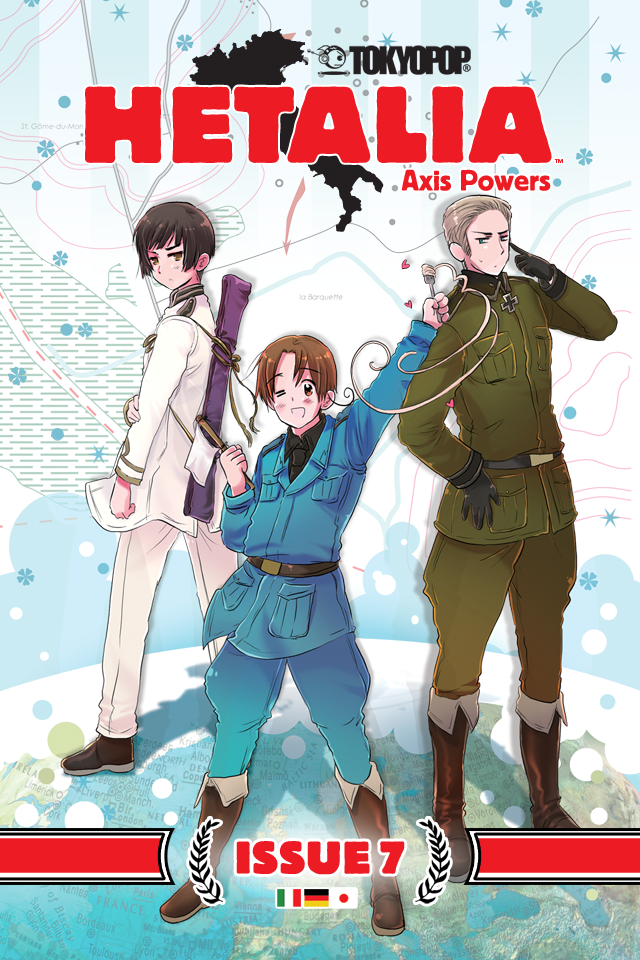One of this week’s spooky manga picks is the always excellent shonen monster hunting series Kekkaishi. It is daunting sometimes to try to catch up on a long running series like Kekkaishi, but Tanabe’s excellent pacing and character development make it possible to keep following the story even if you have skipped a few volumes. I’ve read the first five volumes of the series previously.
Kekkaishi Volume 8 by Yellow Tanabe
Things are growing more complicated for monster hunters Yoshimori and girl next door Tokine. Performing their duties as protectors of the mystical energy site located by their school used to be fairly straightforward, but now they’re dealing with an organized effort from a group of ayakashi (monsters) who even have the ability to take on human form. They’ve been sent an ally named Gen from the Shadow Organization, where Yoshimori’s brother has now risen to a position of power. Gen has been taken out of the fight and Yoshimori and Tokine have to fend off a large group of monsters by themselves. Yoshomori’s latent power briefly manifests when Tokine is frightened, and the leader of the monster pack inexplicably calls off the attack, perhaps content in finding out something about Yoshimori’s power levels that young kekkaishi doesn’t even know himself. The remainder of the volume shows some of Gen’s backstory as he struggles with the idea of continuing his assignment to help Yoshimori and Tokine. Gen is half ayakashi, and has the potential to turn entirely into a monster if he isn’t careful with restraining his power. Yoshimori’s older brother Masamori placed him with a special class within the shadow organization called the Night Troops, which is made up of other children similar to Gen. Masamori also seems to be playing politics within the Shadow Organization, so it is easy to see why Yoshimori might be suspicious of him.
It seemed to me like there was a tiny bit of character progression in the way Yoshimori was drawn. I thought he looked a little bit more angular in the face, perhaps showing him as becoming more mature as a person and in the use of his power since the series started. Tanabe’s monster designs are always a highlight of the book, with Yoshimori’s foes looking like demonic versions of a squid, Cousin It, a mutated bat, and an odd insect.
Kekkaishi Volume 9 by Yellow Tanabe
The ninth volume is devoted to some fun training sessions for Yoshimori, Gen, and Tokine when Gen’s monster trainer Atora shows up suddenly to put them through their paces. She challenges them to capture her, and they’re forced to work together as a team. Tokine and Yoshimori already have a rapport, but Gen just tends to rush off into battle and doesn’t coordinate his actions with others. Due to some traumatic events when his power manifested Gen tends to hold himself apart from others. Atora was a fun character, who was always drawn with a sunny grin on her face. She announces her presence by blasting the door in and seems absolutely delighted at the opportunity to stage a mock battle. More importantly, she wants to check up on her pupil to see if he’s finally making friends. She’s accompanied by a giant bear named Raizo who is extremely cute even as he starts emitting dangerous electricity.
While the new three person team of kekkaishi begins to work together, the organized group of akakashi start acting up in mysterious ways. One of them drinks up the mystic swamp where the spirit Lord Uru lives, and Yoshimori is concerned about the fate of the nature god. This volume contained some of Tanabe’s great arresting images. Yoshimori’s grandfather thinks one of his old friends might be in danger of an attack, and a representative of the Shadow Organization breaths a giant smoky scorpion into existence in order to provide transportation. Gen and Yoshimori bond over lunch as they float on a cube of energy far above their high school.
I think it says a lot about Tanabe’s skills as an author that a manga that juggles complex plots and a variety of characters is still easy to follow even if there are gaps in the volumes that you’ve read. One of these days I’ll be totally caught up! In a world filled with formulaic shonen, Kekkaishi really is something special.



